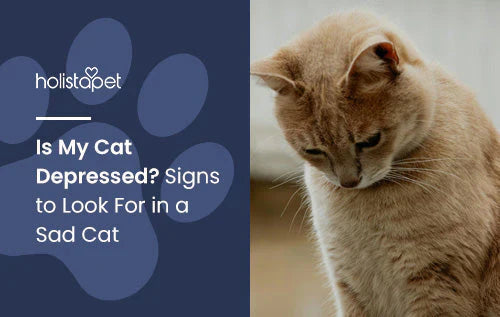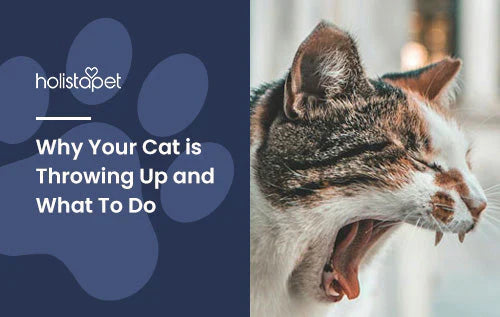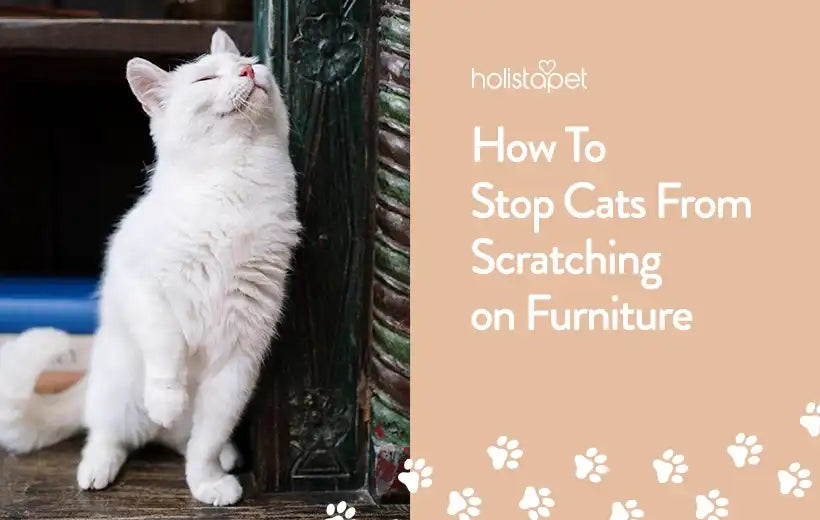You notice your cat no longer greets you at the door when you come home. They're also sleeping for longer periods of time and don't even get up to eat. Cats can't outright tell us how they're feeling, so sometimes it can be hard to tell if you have an upset or depressed cat. Luckily, there are a variety of ways to identify if your cat is depressed — and there are even more ways to make them feel better!
Do Cats Get Depressed?
The short answer is: Yes. Cats are intelligent animals that experience a wide range of emotions, including happiness, love, fear, sadness, and anger. Of course, they express these emotions differently than us, which is why some people aren't able to identify their cat's feelings right away.
Signs of Depression in Cats
Cat owners have to look at their cat's actions and compare them to the cat's typical behavior. If your cat is depressed, you'll quickly notice some worrying signs:
- Change in Litter Box Habits: If your cat is suddenly not using the litter box and is instead urinating and defecating outside of it or around the house, this could definitely be a sign of stress or depression.
- Suddenly Becoming Lethargic: Cats sleep an average of 15 hours a day. But when they're not resting, cats love to play, explore, and interact with you. Depression in cats could lead to them sleeping even more than usual or not wanting to do much of anything when they're finally awake.
- No Desire to Eat: A cat experiencing depression may not have any interest in food anymore. They may also stop eating food they once liked.
- Over or Under Grooming: If you notice a change in your cat's grooming habits, that may be a sign of depression. They may develop dandruff and look a lot shabbier than usual. A sad cat may also over-groom, leaving irritated skin and bald patches where they excessively lick. This can also be a sign of anxiety.
- They're Less Affectionate: If your cat is normally social and cuddly but they've become suddenly withdrawn and distant — even leaving when you sit near them or try to pet them — that could be a sign of depression. Some depressed cats may also start to hide, no longer wanting to bother with the people or animals in your home.
- Noticeably More Aggressive: A cat experiencing depression could be irritatable or on edge. This can result in excessive scratching cats, hissing, and growling. You might even get scratched if you don't leave them alone after a few warnings!
- More Vocal Than Usual: A sign of depression could be your cat being excessively vocal during times when they were previously silent. And it won't just be meowing. Sometimes a depressed cat will yowl.
Related: CBD For Cat Anxiety – How To Calm With Cannabidiol

Why Do Cats Get Depressed?
Just like us, there are many reasons cats may become depressed. It's possible that it was caused by a chemical imbalance in their brain, but for cats, there's often a reason behind their newly formed behaviors.
- Illness: A cat that constantly doesn't feel well could also become upset — even depressed. Some common illnesses that leave cats with serious health problems, as well as mental anguish, include FIV, FeLV, diabetes, dental disease, and fatty liver disease.
- Injury: Suddenly being in tremendous pain can greatly affect your cat's mood. Injuries can leave cats unable to do what they previously enjoyed, like jumping onto high-up surfaces and chasing toys.
- Change in Environment: Cats are extremely territorial pets. When you move to a new home, indoor cats can often become stressed and upset — even depressed — because they get very attached to certain spaces and routines.
- New Pet or Baby: Because cats can often be territorial, many cats will be angry or stressed when a new pet or family member is introduced to the home. If they're not introduced to the new addition properly, unhappy cats can become increasingly uncomfortable.
- Loneliness: People who leave their cats alone for eight or more hours a day will often notice their cat becoming clingy or spiteful. They can also become depressed if you leave for a long period of time on vacation.
- Losing a Loved One: Cats will grieve for the loss of a loved one, human or animal. This grief can lead to depression in some cats.
Related: How to Introduce Cats: Successful Methods & What Not to Do
Should You Go to the Vet for Cat Depression?
If you suspect that your cat is depressed you should consider taking them to the vet. Veterinarians can prescribe cat anxiety medication (trazodone, gabapentin, and midazolam) to your cat once they're evaluated. They could also recommend behaviorists, who can further help your cat deal with their depression properly.
How to Cheer Up a Cat
- Create a Routine: Cats like routine. That's why moving can be such a traumatizing experience for cats. Comfort them by making sure they are always fed at the same time and even start brushing them or playing with them at the same time every day.
- Encourage Them to Play: Sometimes cat owners forget that cats need exercise just like dogs. Start setting aside time to play with them every day, whether it's throwing jingle balls down the hall or wiggling a ribbon in front of them.
- Give Them Their Own Territory: While cats count the entire home as their territory, it can help them to have a specific space within the house to claim as their own. This allows the cat to escape from dogs and children that can't climb that high up. It also gives them a sense of security, knowing they can watch what's going on from above.
- Catnip Spray and CBD Treats: CBD product, short for Cannabidiol, is a non-psychoactive phytocannabinoid found in the hemp plant (basically meaning it won't get you or your cat high). CBD interacts with cannabinoid receptors found in every mammal's (ECS). The CBD in Holistapet's vegan, natural, non-GMO cat treats may help balance your cat's mood. You can also add CBD oil to your cat's food. Our catnip spray with CBD is probably the fastest way to boost your cat's mood since many cats immediately become excited upon smelling it.
Find More Cat Care Tips Here

Final Thoughts
Cats can become emotional and at times even become sad and depressed. It's up to us to notice the symptoms and signs associated with feline depression. Paying close attention can help you spot any potential problem that makes your cat sad. If your kitty is feeling down and you can't seem to cheer them up in any way remember you can always go to the vet for help. Read more about Holistapet here.


 CBD Oil for Cats - Fast Acting
CBD Oil for Cats - Fast Acting
 CBD Cat Treats - Easy Dose
CBD Cat Treats - Easy Dose
 CBD Calming Chews for Cats - Highly Rated
CBD Calming Chews for Cats - Highly Rated
 CBG Oil for Dogs and Cats - Loved by Thousands
CBG Oil for Dogs and Cats - Loved by Thousands





Leave a comment
All comments are moderated before being published.
This site is protected by hCaptcha and the hCaptcha Privacy Policy and Terms of Service apply.